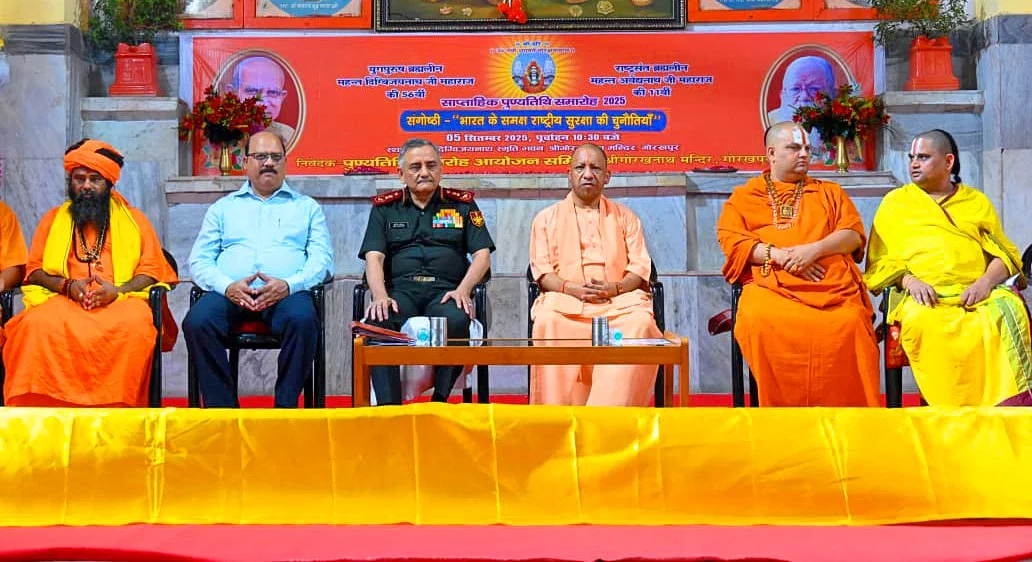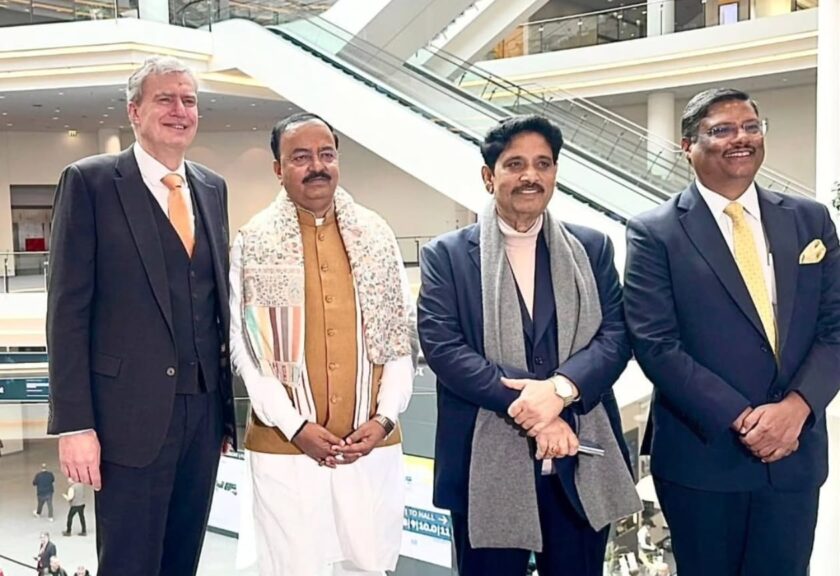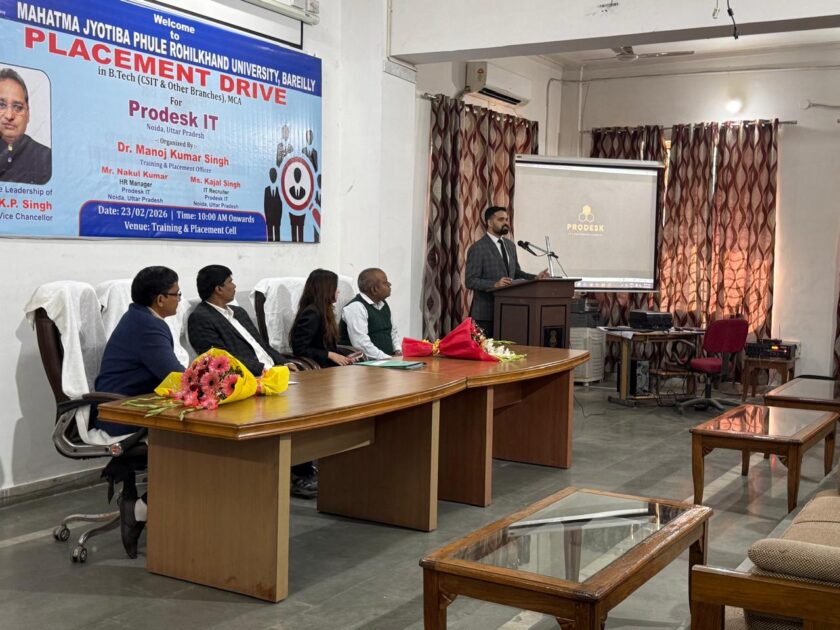Gorakhpur – Chief Minister and Gorakshpeethadheeshwar Yogi Adityanath on Friday asserted that a nation can remain safe only by protecting its citizens and eliminating disruptive elements. He was addressing the inaugural day of a symposium series on “National Security Challenges Before India”, organized to mark the 56th death anniversary of Yugpurush Brahmaleen Mahant Digvijaynath Ji Maharaj and the 11th death anniversary of Rashtrasant Brahmaleen Mahant Avaidyanath Ji Maharaj.
Quoting Acharya Chanakya, CM Yogi said that a nation may appear secure externally, but if plagued by internal chaos, it risks rapid decline — citing Pakistan as an example. He stressed that internal disorder weakens a nation from within and leads to eventual destruction. Drawing parallels from the Ramayana and Bhagavad Gita, he underlined that safeguarding the virtuous and destroying evil has always been central to India’s civilizational ethos.
The Chief Minister praised India’s armed forces, noting that soldiers endure extreme conditions so citizens can sleep in peace. He reiterated Prime Minister Narendra Modi’s Panch Pran for a developed India by 2047, which includes honoring the sacrifices of soldiers.
Chief of Defence Staff General Anil Chauhan, the symposium’s chief guest, emphasized that surprise is key to military success, citing the Uri surgical strike and Balakot air strike. He outlined three essential components of national security: territorial integrity, ideological protection, and citizen safety. Highlighting new-age threats like cyber warfare, he noted that India faces over 700 cyberattacks every minute.

Paying tribute to Mahant Digvijaynath and Mahant Avaidyanath, CM Yogi said their lives were dedicated to spiritual pursuits as well as nation-building. The event also saw floral tributes, Vedic recitations, and participation from prominent saints and scholars across the country.
The symposium concluded with a reminder that India’s national security extends beyond borders — encompassing military readiness, ideological resilience, and collective responsibility of citizens.









